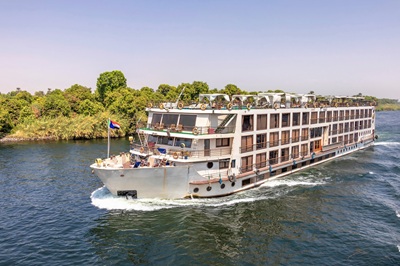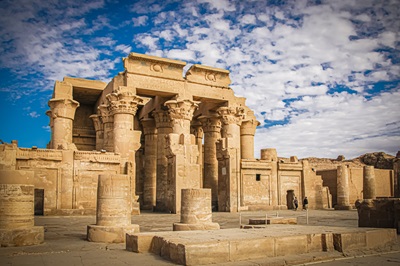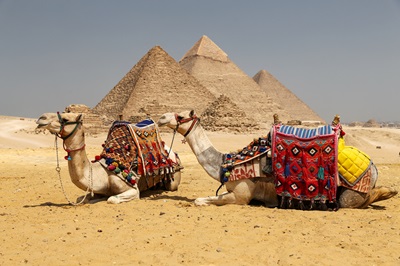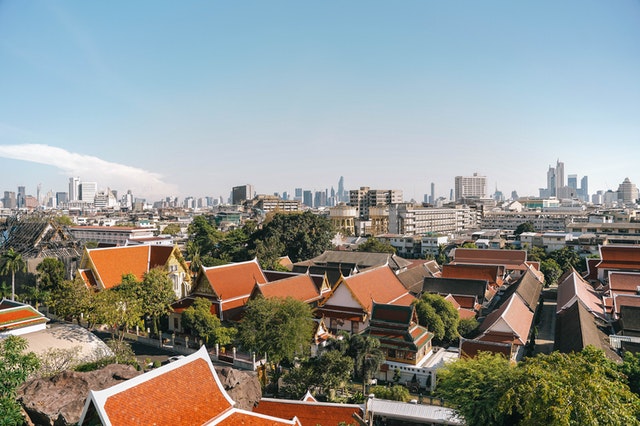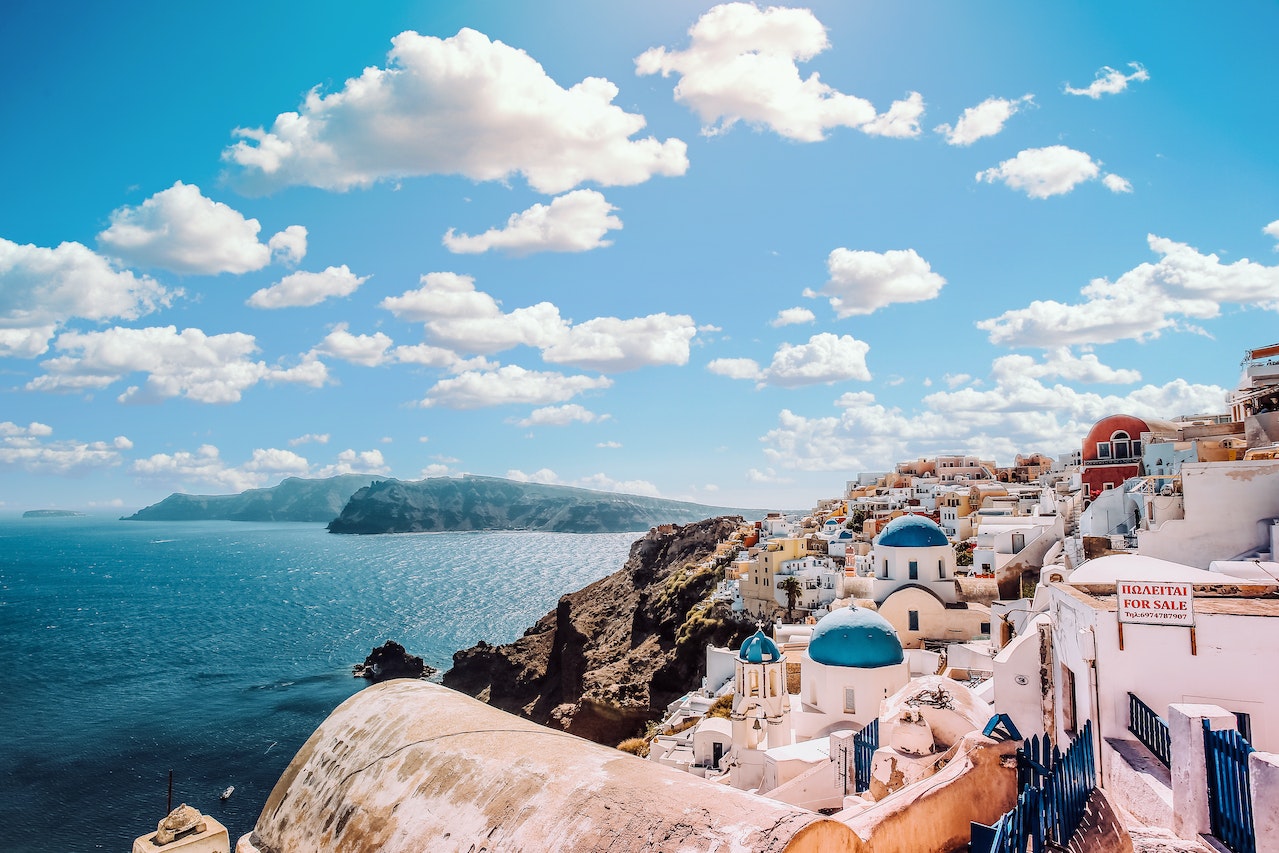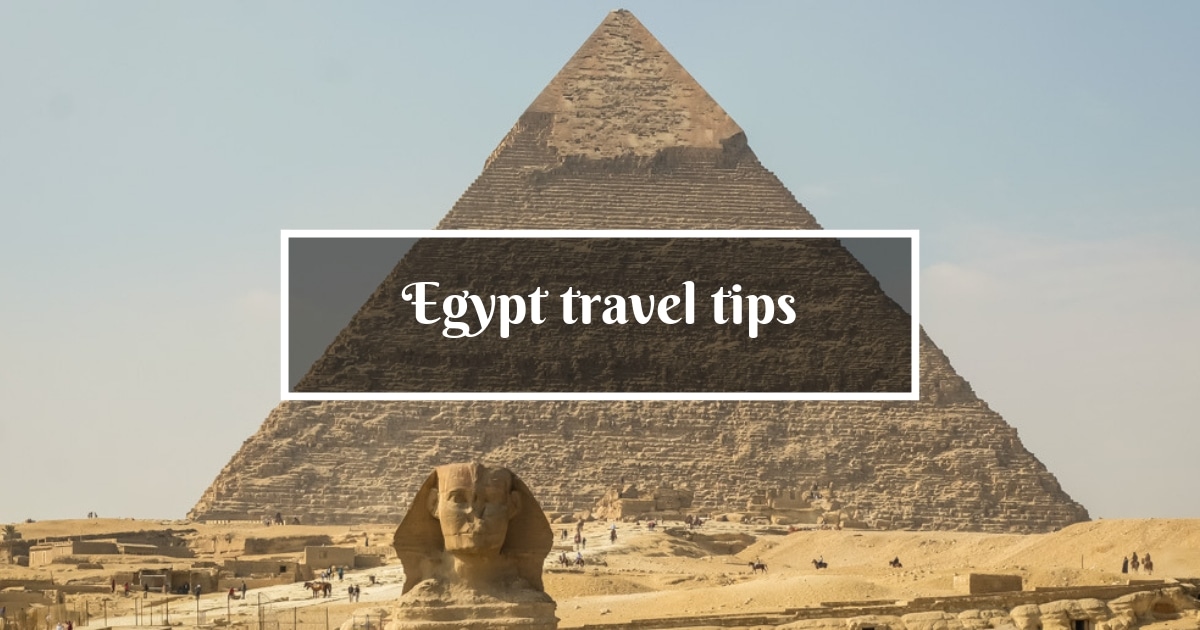
Are you planning a trip to Egypt and looking for some great tips to help make the entire process as smooth as possible? Our travel experts are here to assist you with a variety of travel advice and trip details.
The Currency of Egypt:
Egypt's currency is Egyptian pound (referred by LE - Livre Egyptienne) and one LE is equal to 100 piasters, or genaeh in Arabic. You will find 25 and 50 piaster notes and 1 pound coin
At present $1 dollar is equivalent to about 17.8 Egyptian pounds.
In Egypt, most of the banks are open from Sunday to Thursday, from 0830 to 1400, though banks at major entry points, like airports, are open 24 hours daily.
- Note: Most of the major credit/debit cards, such as Visa, MasterCard, American Express, all Euro cards, and JCB, are widely accepted in various hotels and shops. If you want to use an ATM machine, then most of them accept E-Visa, MasterCard and Cirrus cards. If you can't find an ATM in your vicinity, you can still obtain cash if you go to any of the Misr Bank branches. But do note: banks are unwilling to accept $100 notes issued before 1992.
- If you wish to convert your currency, you can use $US, £UK or Euros, as they are accepted in many banks and other places. TIP: Don't change your $, £ or Euro until you arrive in Egypt – the conversion rate is much better here!
- Another important point is that Scottish pounds and Irish punts are not accepted by Egypt Banks! You will find plenty of banks at the airport and several foreign currency exchange offices. Your duty-free goods must be purchased within 48 hours after arrival.
- If at any point during your tour, you run out of money, and your credit cards are not accepted, you can still have money wired to you from abroad. In Egypt, there are many Western Union branches, and it takes mere moments to have money sent to you.
Traveling Alone Advice:
As a tourist country, Egypt cannot be compared to other countries. Almost everything is cheaper here; even entry fees to the sites are cheaper than many other countries. Flying to Egypt is also cheaper than many other destinations in the world. These days, you're even able to buy an organized package with accoommodations for $500
It's advisable to never hire a taxi to tour the sites. Local taxi drivers really only care about what you'll pay at the end of your trip. Travel agencies, or local licensed guides, will treat you much better. Today there are so many travel agencies in Australia and the UK that offer very cheap trips. However, if you want to plan a trip yourself, then you must be prepared.
You must be aware of the following TIPS:
Hints and Tips
- If you must take a taxi, then it would be best if you asked the reception/ concierge of your hotel to get you one. They have assigned taxis that they know very well, and deal with on a daily basis. If you want to tour a site on your own, you have to be aware of where you are going, how much you are going to pay for the ticket, and what is included with the ticket. That is why I started this site, to give you this information.
- First-time travelers to Egypt must know where the recommended restaurants are if you plan to dine out, and where you will find clean healthy food. Don't consider the price, even if you dine in a 5-star hotel, it is still cheaper than in your own country! Independent travel, for your 1st experience, is not advised. I have explained elsewhere about how "Lonely Planet" gives the wrong impression. I have spoken to many people who have traveled solo, and wish they had gone as part of a group (I do not mean a package holiday – groups can be arranged when you get there!).
- First and foremost, prepare yourself for a culture shock! Many seasoned travelers are amazed when they first visit Egypt and find that it is unlike any other country that they have previously visited!
- Egypt is a Muslim country, so please respect their faith. Many things that you take as the norm, such as kissing and/or fondling your partner in public, wearing revealing clothing etc., are frowned upon here, so try and be more conservative in your attitude. Homosexuality is actually illegal in Muslim countries!
- Have a look at the our Blog for more hints and tips from other travelers. If you have any questions, please ask it on the blog, no matter how trivial you may feel the question is.
- Do not rely solely on travel books such as Lonely Planet and Rough Guide. Though do contain a lot of good information, they do not explain everything or advise you on what to do regarding any potential problems. Too many people have come to Egypt, armed with one of these books, and have left, totally disappointed with their trip, vowing never to return!
- If you are traveling alone, or as a couple, and wish to organize everything yourself, please let the hotel know your plans before you leave. If you should get lost, the hotel will be able to act on your behalf! Also, take a note of the hotel's name and telephone number, in case you do get lost, or change your plans.
- If you wish to organize everything yourself, be prepared for the occasional "rip-off". Like many other tourist destinations, Egypt has its "wolves" who prey on unsuspecting travelers. Often the total cost of an excursion can be a lot more than if you had arranged it through your hotel, or a travel agent, and not to mention, a lot less enjoyable.
- Never drink the tap water! It is okay to wash, shower and clean your teeth with it, but not advised to drink. Bottled water is cheap and plentiful; use it instead!
- In Egypt, they drive on the right, be careful when crossing roads. Take special care in Cairo, where the traffic is a lot busier than in other Egyptian cities – especially outside the Egyptian museum! The UK and Japanese travelers should be extra careful, as you will be used to traffic driving on the left.
- Get your entry visa at your destination airport; it often works out cheaper than getting it at home. Also, you can exchange your $, £ or Euro at the same time – the conversion rate is far better in Egypt!
- If you are going to be using the Abela Sleeper Train service, please try and make your reservation in advance. For help with this, try here.
- Internal flights by Egypt Air must be booked in advance as well.
- Get to know the other guests in your hotel, many of them will give you advice about what and what not to do. They should also be able to tell you where the best restaurants and bargain centers are; no one will knowingly recommend a bad place!
- Ask your hotel's reception desk for help and/or advice. They will know the best taxis, tour companies etc. and will let you know. Some hotels can also take bookings for excursions.
- Do not be scared of being part of a group for excursions. These groups have leaders (a tour guide and/or Egyptologist) who will help with problems, explain about the site you are visiting, arrange transport (if necessary!) etc., things you would find difficult if you tried it alone. You will also find that you will get less hassle if you are part of a group! Many traders will not approach a group of people, but they will approach a lone traveler or a couple.
- When you pay for a group excursion, the price includes everything except for tips (sometimes admission prices are not included). This includes transport, a driver, a tour guide, tolls etc. Some longer excursions may even include a stop for lunch (often included in the price too). Many will take you to places where Ancient crafts are still practiced, giving you the chance to buy good quality merchandise at low prices.
- Buy (and drink) plenty of water. You will find it a lot cheaper to buy in the various shops than at your hotel or cruise boat. You may not drink a lot of water at home, but make sure you do in Egypt. It is very easy to become dehydrated if you don't.
- Remember that Egypt is a 3rd world country, and has many poor people who think that all tourists are rich, no matter where they come from in the world! Learn the phrase "la shukran" (no thank you) and don't be afraid to say it to anyone who tries to sell you anything, or asks for "baksheesh". Believe it or not, it does work. Please do not say "emshi" (as many tour books advise), this can be taken as an insult.
- If you forget the expression "la shukran", just politely say "no thank you" and walk away. Don't get abusive to the trader; he is only trying to feed his family.
- If you feel that someone is being too pushy, let a member of the Tourist Police know. You will see them everywhere in Egypt and their job is to protect you.
- Admission to all sites is payable in LE, so make sure that you carry enough with you. Try and plan each day in advance, work out how much you will need for admissions, and keep this money separate from your spending money.
- If you want to go on a felucca trip, be careful! Again, ask for advice from your hotel first, to find out the best captain to approach. Unfortunately, there have been reports of some captains demanding extra money for the return leg of a journey, or demanding to take you somewhere else first! While this is not the norm, but it does occasionally happen.
- You will find that many tours (especially to the desert sites) are done either early morning or late afternoon. The reason for this is because of the heat in the middle of the day. If you do want to visit sites independently, please try and follow the example of the experienced tour organizers and avoid the midday sun!
- Be prepared for delays when entering some sites. Because of the threat of terrorism, you will have your personal belongings (camera bags, carrier bags etc.) searched before gaining admittance. Though this is annoying, it is for your safety! Also, on some sites, they may find video equipment, which they will take from you. Don't worry, you will get it back! It is just that certain sites do not allow videos to be used.
- Take a small pocket flashlight with you when visiting the sites. Many tombs, temples etc. use the natural light for illumination (including a local with a large mirror, reflecting the light!) and a small flashlight can be very handy. A small mirror, such as the one in a ladies makeup, can also be used to highlight a relief. Please Note: Do not take one of the really bright halogen torches, you could cause damage to the monuments!
- Once developed for cleaning the parts underneath a babies nappy / diaper, "Wet Wipes" (the small, damp, tissue usually bought in a plastic tub) are becoming more and more popular with adults. They are also very useful when traveling in Egypt. When you have felt the relief's in a Temple, touched the hieroglyphs in a Tomb, caressed the stones on the Pyramids etc., you only have to take one of these wipes out to instantly clean your hands. No more looking for a washroom!
- Make up a small "medical-kit" before you go! Include things like safety pins, plasters (different sizes), antiseptic cream, diarrhea tablets, headache tablets and sunscreen (high factor advised).
- Take a box of cheap ballpoint pens. The children (and many adults) are very happy when you hand them out, handy for baksheesh.
- When shopping for bargains, keep your own currency and credit cards out of sight, and separate from your LE. It is easier to haggle over a price if you can show that you have only a few Egyptian pounds in your possession! Plus, some traders may try and insist that they meant $ or £, instead of LE, if they see that you are carrying them.
- Wear sensible footwear when visiting the various sites. High heels and open toe shoes are not advisable. The floors of most sites are either sand or rough-cut, with uneven stone. Inside many tombs, wooden floorboards have been installed, but thin heels could get caught in the gaps between the floorboards.
- Many monuments have signs that say " No Flash Photography", please obey these signs (you can be ejected from the site if you ignore the sign!). The very bright flash can cause serious damage to some of the ancient paintwork!
- Some reliefs have depictions that show male genitalia – this is not pornography, so there is no reason to be offended! If you are part of a group (of any size) the leader/guide will explain the reason for the depiction.
- If you are traveling by road to Abu Simbel, ask your hotel or cruise boat if they supply a "breakfast box". Some hotels do this, as they cannot supply you with a breakfast before you depart. If they do not do this service, take some food with you, as hunger will set in before you reach Abu Simbel (a 3 ½ - 4 hour trip, each way!) Also, make sure you take plenty of water with you; it tends to be hot here and you can dehydrate very quickly.
- When visiting the West Bank sites at Luxor, again take plenty of water with you! You will be there for either ½ day or a whole day (with a break for lunch) and it can become very hot, drink a lot of water to avoid dehydration!
- Ladies, if you intend visiting the inside of one of the pyramids, please wear trousers (or jeans). You may have to ascend/descend ladders and/or crawl through narrow passages. For the same reasons, I would advise men to avoid wearing shorts.
- Public transport (town bus services, and in Cairo, the Metro!) in Egypt is very cheap, but try and avoid it if you can. You will only put yourself in an awkward position having many locals staring and talking about you. Taxis are not expensive so use these for traveling about town. Your hotel will let you know the best companies to use.
- If you on a "multi-center" holiday, and you will be returning to your first hotel before your departure, arrange to leave some of your luggage, and items you have bought, with the hotel. Most hotels offer this service free of charge (or for a very low cost) and it saves you from having to carry too much to your next destinations.
- When you have paid your entry into the Egyptian Museum and received your ticket(s), a "guide", offering his services, will approach you. These "guides" are not employed by the museum, they are freelance. Most of the museum's exhibits are not labeled, so the chances are, you will not know one from another. A guidebook is available from the museum, but it is up to you if you want to employ one of these"guides". If you decide to do so, make sure you haggle for a good, low price, so that if he is useless, you have not wasted much money. You could even try and form a group with other visitors to share the cost! To avoid this problem in the first place, ask at your hotel for advice on getting a proper guide!
- At most sites, especially if you are alone, or in a couple, a "guide", offering to show you around, may approach you. To these people you should say "La Shukran" or "no thank you"! The Egyptian Government does not employ any guides at any of the sites and monuments! Again, ask at your hotel, for help, before you visit the site.
- Do not buy anything from the traders inside the Giza Plateau! The items they are trying to sell you can be bought a lot cheaper at places like the Khan El-Khalili. Also beware the many people offering you camel rides, as they are not all genuine! Head for the main stables if you want a camel ride, or better still, arrange one at your hotel.
- If you go to the Citadel, try and ignore the traders selling "papyrus" pictures, as the "papyrus" is made from banana leafs, they are not genuine papyrus! Also, if you buy some from one trader, another will approach selling you "pictures that the other man did not have"! To get mementos here, there are some stalls between the bus park and the old bank, where the traders are better to deal with, and not so pushy.
- Many people, to save money, use the express train service, Cairo - Luxor/Aswan - Cairo. This is a long journey, though it is comfortable (and the scenery is breathtaking!). Before boarding the train, make sure you take some food with you, as the supplies "on-board" run out very quickly and are not replenished. A book is often advised, to help pass the time. Make sure you get the 1st Class, air-conditioned express train (normally, tourists have no option – the lower class carriages are for locals only!). They are non-smoking, but you can smoke in the entrance/exit area!
- Do not feel that 5-star hotels are always the best! There are many 4 star hotels, that are Egyptian owned and run, that offer the same facilities as the big multi-national ones, sometimes they offer better service and in most cases, the staff is a lot friendlier!
- We, at
Luxor and Aswan Travel
, advise against the idea of a felucca trip between Aswan and Luxor (Esna), unless you are really intent on sleeping under the stars and eating food that is not of the best standard. Many of this little felucca tip over, due to the strong wind, and you will end up losing all your luggage in the bottom of the Nile. We recommend using big Cruise boats, they can do the same trip, with better sleeping accommodation and first class food! - I would advise you to bring a supply of any medicines that you take regularly and bring the prescription too. Feel safe in the knowledge that in the unlikely event of serious trouble, your hotel or cruise boat staff will find, and provide, a doctor for you instantly.
- And don't forget that is always a good idea to bring mosquito repellent for open-air night events! It helps to minimize the "mosquito annoyance factor"!
- You know what your stomach is like! Just because you are on holiday don’t treat it differently, if you have a sensitive stomach and tend to stay to a certain type of diet, try and do the same when you are Egypt. Err on the side of caution; you do not want to ruin a great holiday because you have eaten something you would never have tried at home. Some people are lucky, they seem to be able to consume anything and everything, others become ill by simply looking at a different food. You may feel brave by trying something different, but sometimes you are better by being a coward and enjoying your stay.
- Wash your hand always before eating. this contributes a lot to the cause of your travel sickness.
- Only bottled water must be used, as waters in the Egyptian cities is said to be highly chlorinated. Also, there should be ample care taken when eating out to prevent the occurrence of travelers’ diarrhea, which is a very common health concern that most people face when traveling to a new country.
- And finally: Please do not let this list put you off going to Egypt. It has been compiled from questions that people regularly ask, and complaints that travelers have experienced. This list is to help make your visit as enjoyable as possible.
